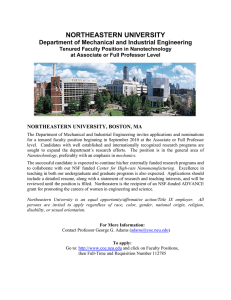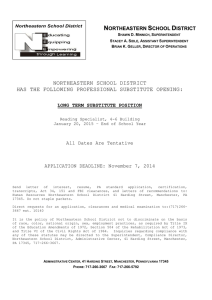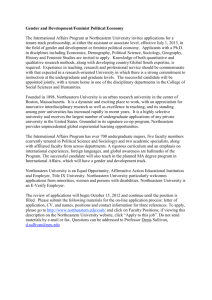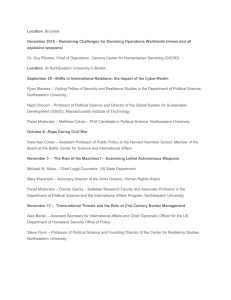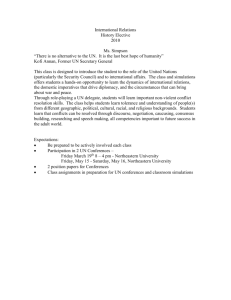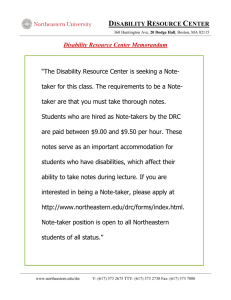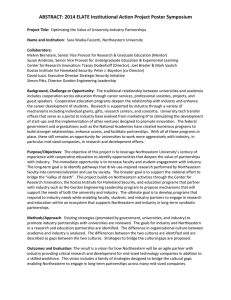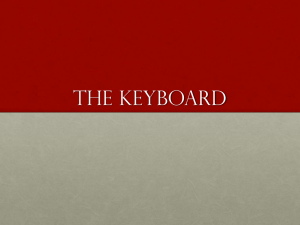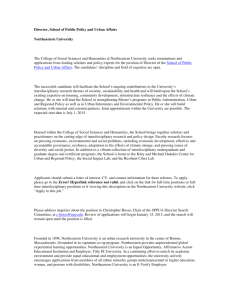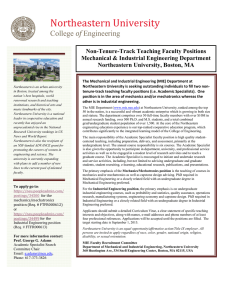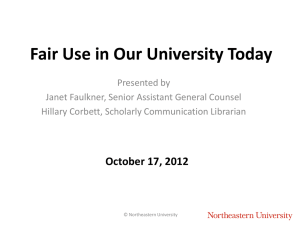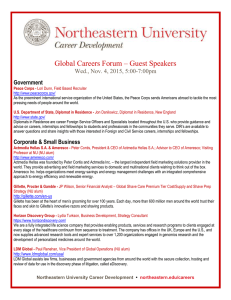NU Goes Global - Translingual Writing
advertisement
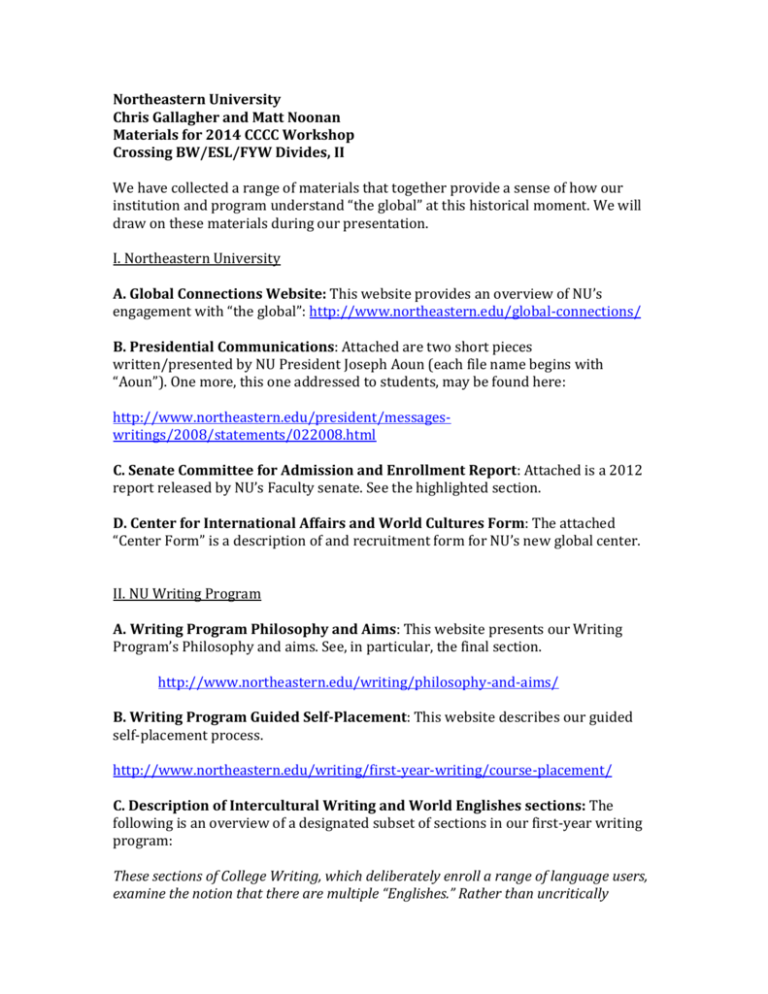
Northeastern University Chris Gallagher and Matt Noonan Materials for 2014 CCCC Workshop Crossing BW/ESL/FYW Divides, II We have collected a range of materials that together provide a sense of how our institution and program understand “the global” at this historical moment. We will draw on these materials during our presentation. I. Northeastern University A. Global Connections Website: This website provides an overview of NU’s engagement with “the global”: http://www.northeastern.edu/global-connections/ B. Presidential Communications: Attached are two short pieces written/presented by NU President Joseph Aoun (each file name begins with “Aoun”). One more, this one addressed to students, may be found here: http://www.northeastern.edu/president/messageswritings/2008/statements/022008.html C. Senate Committee for Admission and Enrollment Report: Attached is a 2012 report released by NU’s Faculty senate. See the highlighted section. D. Center for International Affairs and World Cultures Form: The attached “Center Form” is a description of and recruitment form for NU’s new global center. II. NU Writing Program A. Writing Program Philosophy and Aims: This website presents our Writing Program’s Philosophy and aims. See, in particular, the final section. http://www.northeastern.edu/writing/philosophy-and-aims/ B. Writing Program Guided Self-Placement: This website describes our guided self-placement process. http://www.northeastern.edu/writing/first-year-writing/course-placement/ C. Description of Intercultural Writing and World Englishes sections: The following is an overview of a designated subset of sections in our first-year writing program: These sections of College Writing, which deliberately enroll a range of language users, examine the notion that there are multiple “Englishes.” Rather than uncritically accepting one standard dialect of English, the class will explore a variety of ways English is spoken and written across the world, including by the students in the class. In this way, intercultural communication will become both the means and the object of study. Language difference will be approached as an asset, rather than an impediment, to learning. The class will study a range of texts, including the essays in Rosina LippiGreen’s English with an Accent, films, and short stories for what they say about language difference and how they perform it. Similarly, students will compose print and multimedia writing projects–academic, expressive, and public–that simultaneously explore and enact language difference. D. Overview of Annual Krueger Symposium: The attached document (“Krueger Symposia Overview”) provides a brief synopsis of the writing program’s annual symposium for teachers of international and second-language teachers. E. Multilingual Writers Data Set: The attached document (“Multilingual Writers Data Teaser”) overviews a study we have undertaken into NU’s multilingual writers’ perceptions of their language experiences and aspirations.
